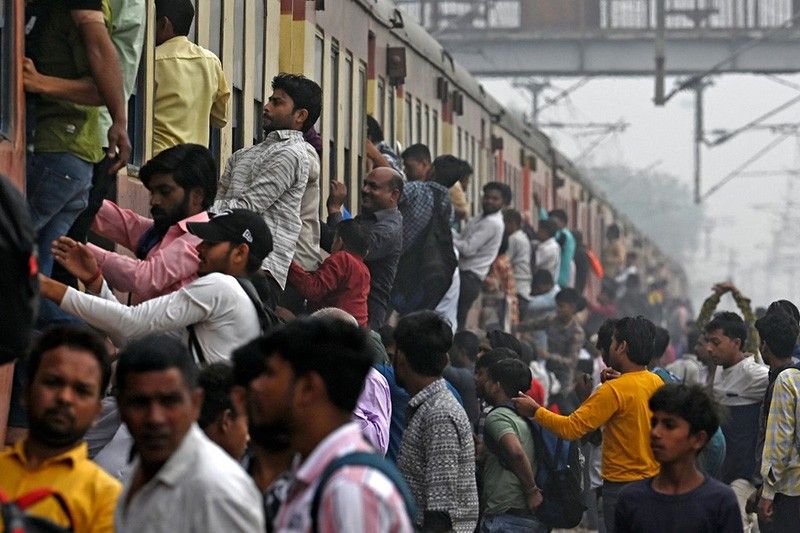India to pass China this week as world's most populous nation — UN

UNITED NATIONS, United States — India will overtake China as the world's most populous country in the coming week, hitting almost 1.43 billion people, the United Nations said Monday.
"By the end of this month, India's population is expected to reach 1,425,775,850 people, matching and then surpassing the population of mainland China," the UN Department of Economic and Social Affairs said.
Last week the UN's annual State of World Population report had said the milestone would come by midyear 2023.
India is topping China due to both rapid growth in its own population and a decline in China's after hitting 1.426 billion last year.
Regarded as the world's most heavily populated country since the fall of the Roman Empire in the 5th Century CE, China is expected to decline steadily to around one billion people by the end of this century, according to UN projections.
The China data does not include Taiwan, Hong Kong or Macau.
Meanwhile, India's population "is virtually certain" to continue to grow in the coming decades, according to the United Nations.
The median UN projection sees India hitting 1.5 billion by mid-century -- though officials stressed it could be much lower or higher.
China's fall is heavily tied to decades of maintaining a strict one-child policy for married couples, which ended in 2016.
In addition, its slower growth is attributed to the rising cost of living and the growing number of Chinese women going into the workforce and seeking higher education.
Last year, China's fertility rate fell to one of the lower levels in the world at 1.2 births per woman.
For India, which has taken much longer than China to get population growth under control, the fertility rate was 2.0 births per woman, just below the 2.1 replacement level.
Yet both countries had about the same level of fertility, just under six births per woman, in 1970, said John Wilmoth, director of the Population Division and the Economic and Social Affairs Department.
"It took three and a half decades for India to experience the same fertility reduction that occurred in China over just seven years during the 1970s," he said.
A key reason for the difference was Beijing's one-child policy; another was India's lower human capital investment and slower economic growth during the 1970s and 1980s, according to the UN.
Wilmoth said that the reason the population report last week said India would surpass China by midyear was that it was using a projection made based on data last year.
The projection announced Monday is based on more recent data -- though still a projection, Wilmoth stressed.
"The precise timing of when this crossover occurs is not known for sure and it will never be known," he told reporters.
Ageing populations and jobs
Both countries must confront rapidly ageing populations, China more so than India.
India faces huge challenges providing electricity, food and housing for its growing population, with many of its massive cities already struggling with water shortages, air and water pollution, and packed slums.
Surpassing China shines a spotlight on the challenge facing Prime Minister Narendra Modi to provide jobs for the millions of young people entering the job market every year.
Meanwhile China's economy is increasingly challenged to fill positions due to its ageing population.
Beijing said last week that its national strategy is designed "to actively respond to population ageing, promotes the three-child birth policy and supporting measures, and actively responds to changes in population development."
"China's demographic dividend has not disappeared. The talent dividend is taking shape, and development momentum remains strong," said foreign ministry spokesman Wang Wenbin.
- Latest
- Trending
































